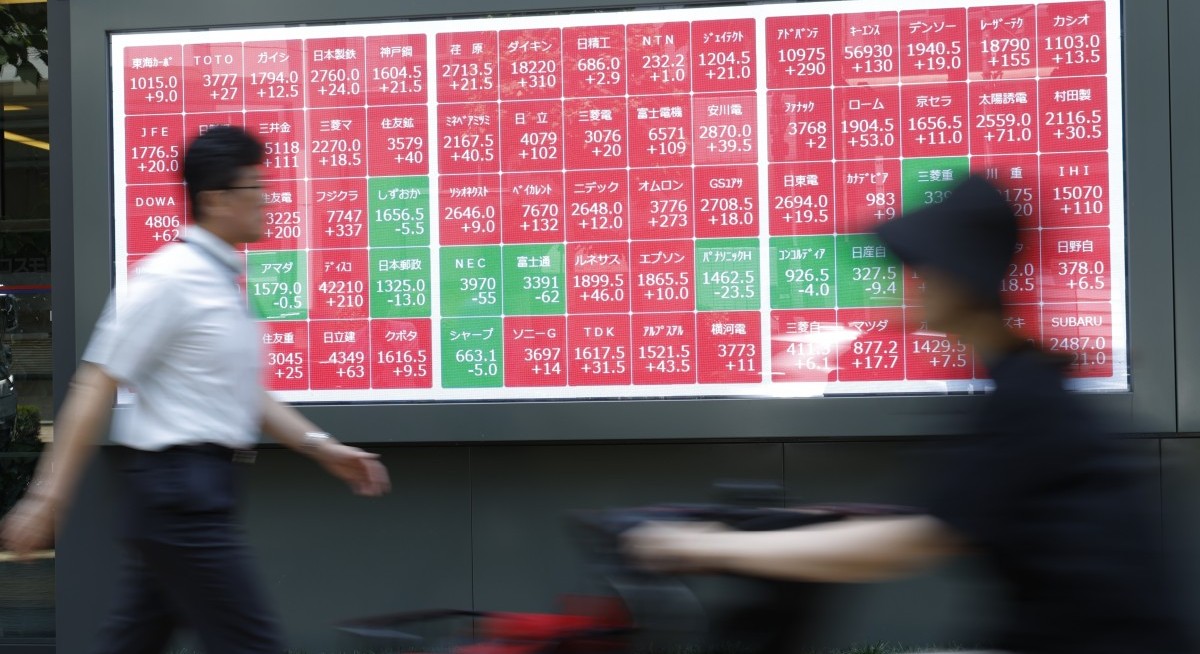Automakers led shares higher after US President Donald Trump announced a deal to set tariffs on imports from Japan at a lower-than-feared level of 15%. That pushed the broad Topix measure and the Nikkei 225 gauge of blue-chip equities more than 3% higher.
Yields on shorter-maturity bonds climbed as investors judged that the improved trade situation may allow the Bank of Japan to hike interest rates by the end of the year. Longer-dated bonds also saw yields advance on concern that Ishiba may give way to a successor who increases government spending or reduces taxes.
Moves in the yen, which has advanced this week, were more subdued. It swung within a narrow band and was down about 0.3% at 147.09 versus the US dollar at 2.36pm in Tokyo.
See also: Japanese investors stay wary Takaichi will spur another bond crash
“After weeks of uncertainty, business and financial investors will finally have more clarity,” said Rajeev de Mello, portfolio manager at GAMA Asset Management. The 15% tariff level is lower than the 25% previously feared and so will be positive for market sentiment, he added.
Overnight index swaps are now pricing in about an 82% chance of a BOJ rate hike by the end of the year, compared with about 59% a day earlier.
Yields on 10-year bonds rose 7.5 basis points to 1.575%, putting them within reach of the highest level since 2008.
See also: Japan’s biggest nuclear plant restarts second time after hiccup
Underscoring the concern over Japan’s heavy government debt load, an auction of 40-year government bonds saw its weakest demand since 2011. Yields have traded recently at multi-year highs at a time when the BOJ has been gradually paring back its massive bond purchases.
“The announcement of the US-Japan trade deal will be a factor for higher yields as it will make it easier for the Bank of Japan to raise rates,” said Katsutoshi Inadome, a senior strategist at Sumitomo Mitsui Trust Asset Management.
Many investors were bracing for tariffs of at least 20%, so the new level is “a better-than-expected outcome, which is being reflected in the auto moves higher”, said Andrew Jackson, Japan equity strategist at Ortus Advisors.
Japan’s auto sector “was getting quite heavily shorted” on tariff worries, so Wednesday’s news is a significant tailwind, Jackson added. Shares of Mazda Motor, which generates around 50% of its revenue in North America, surged as much as 18%. Toyota Motor jumped more than 15%.
Trump’s deal, along with expectations for a change in domestic leadership, brings some much needed optimism to Japanese stocks, which have been jittery over worries about fiscal policy after Ishiba lost his majority in the upper house in Sunday’s election.
“Markets would prefer Ishiba to leave and for someone else to come in,” said Gerard Cawley, a Japan equities fund manager at Polar Capital in London. “At least then investors would know what the playing field looks like,” he added.
To stay ahead of Singapore and the region’s corporate and economic trends, click here for Latest Section
But some observers cautioned that the boost to sentiment could be short-lived.
“Now that a deal has been reached, I’d expect markets to shift their attention back to Japan’s fiscal outlook, with risks skewed to further JGB and yen weakness,” said Carol Kong, a strategist at Commonwealth Bank of Australia in Sydney.
The terms of Trump’s Japan deal could also cloud the outlook for Japanese assets longer term. The truce will see Japan invest $550 billion into the US, according to the president.
“Japan’s commitment to invest US$550 billion should be strongly negative for the yen as this means capital flight out of the country,” said Hiroshi Watanabe, head of financial markets research at Sony Financial Group in Tokyo. “So that could be negative for the Japanese economy in the long run.”
Charts: Bloomberg




